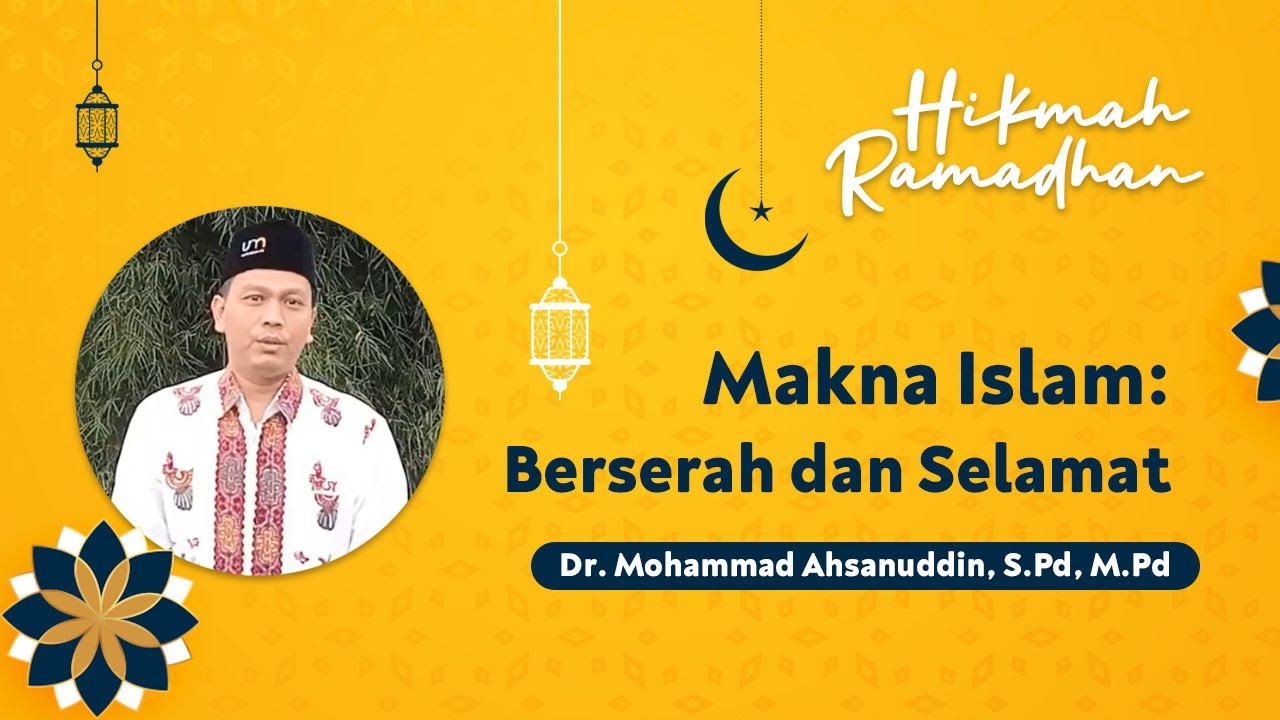Day 47: Do You Own Your Muslim Identity? | Sheikh Mohammed Al-Hilli
Summary
TLDRThe speaker highlights how Islam encourages integration while maintaining core principles like servitude, submission, and taqwa. Exemplary citizenship is encouraged, but not at the cost of assimilation, meaning that Muslims should not abandon their identity to satisfy others. The speaker shares inspirational stories, including one about a Belgian woman standing firm in her Islamic values despite threats, and another about a man prioritizing his faith over his job. These examples emphasize the importance of staying true to one’s Muslim identity while coexisting peacefully with others.
Takeaways
- 🕌 Islam encourages integration as long as it does not clash with key principles like servitude, submission, and taqwa.
- 🌍 Islam mandates exemplary citizenship, promoting positive behavior and peaceful coexistence with others.
- 💡 The Quran encourages Muslims to present their identity with pride, serving as a beacon of light and setting a positive example for others.
- 🚫 Islam discourages assimilation if it requires sacrificing one's core values to satisfy others.
- 🧕 There is a difference between integration and assimilation; Muslims should not abandon their religious identity in public spaces.
- 👩💼 The story of Naima in Belgium exemplifies standing firm in one’s beliefs despite external pressure and threats.
- 👑 The public support Naima received, including the Belgian king's endorsement, shows that standing up for one's values can garner respect and success.
- 🙏 Examples of Muslims practicing their faith confidently at work show that prioritizing religious values can lead to unexpected success.
- 🎯 Islam is not against cultural practices as long as they do not conflict with Islamic principles.
- 🌟 Confidence in one's faith and identity can lead to prosperity and positive outcomes, even in the face of challenges.
Q & A
What does Islam say about integration with other identities?
-Islam encourages integration with other identities, such as American or Arab, as long as it does not clash with the principles of servitude, submission, and taqwa. The Islamic identity must remain the governing force in any integration.
How does Islam view exemplary citizenship?
-Islam mandates exemplary citizenship, teaching that Muslims should represent their faith with pride and honor wherever they live, while promoting peace, coexistence, love, and tolerance.
What is the difference between integration and assimilation according to the script?
-Integration allows Muslims to live in harmony with others while maintaining their Islamic values, whereas assimilation involves sacrificing one's religious principles to fit into another culture, which Islam discourages.
What challenge do some Muslims face in maintaining their identity?
-Some Muslims may leave their Islamic identity at home or at the mosque, hesitating to express it in public. For example, sisters may take their hijab lightly or brothers may fear expressing their Islamic background at work or school.
What story is given as an example of standing by one's principles?
-The story of Naima, a Muslim woman working in a Belgian factory, is shared. She refused to remove her hijab despite threats, and her boss supported her by collecting 20,000 signatures. This case garnered attention from the king of Belgium, who publicly stood against discrimination.
How did Naima’s boss and the community react to the threat against her?
-Naima’s boss supported her decision to wear the hijab, even after receiving threats. He gathered 20,000 signatures from the community and company to show support. The king of Belgium later also supported Naima’s right to wear the hijab.
What lesson does the Quran teach about standing firm in one’s faith?
-The Quran teaches that if you support the cause of Allah, He will support you in return. Even in difficult situations, staying firm in your faith will lead to success and blessings.
What did the speaker’s friend do when his employer asked him not to pray at work?
-The speaker’s friend resigned from his job after being told by his manager that he couldn’t perform salah at work. He prioritized his religious obligations, and by Monday, he received a better job offer with a higher salary.
How does the script suggest Muslims should balance culture and religion?
-The script suggests that Muslims should embrace cultural practices as long as they do not clash with Islamic principles. Islam is not against culture, and adhering to culture can be valuable.
What is the key message about Muslim identity in the script?
-The key message is that Muslims should wear their religious identity with pride and confidence. Maintaining faith and staying true to Islamic principles will lead to success and respect, even in challenging circumstances.
Outlines

Dieser Bereich ist nur für Premium-Benutzer verfügbar. Bitte führen Sie ein Upgrade durch, um auf diesen Abschnitt zuzugreifen.
Upgrade durchführenMindmap

Dieser Bereich ist nur für Premium-Benutzer verfügbar. Bitte führen Sie ein Upgrade durch, um auf diesen Abschnitt zuzugreifen.
Upgrade durchführenKeywords

Dieser Bereich ist nur für Premium-Benutzer verfügbar. Bitte führen Sie ein Upgrade durch, um auf diesen Abschnitt zuzugreifen.
Upgrade durchführenHighlights

Dieser Bereich ist nur für Premium-Benutzer verfügbar. Bitte führen Sie ein Upgrade durch, um auf diesen Abschnitt zuzugreifen.
Upgrade durchführenTranscripts

Dieser Bereich ist nur für Premium-Benutzer verfügbar. Bitte führen Sie ein Upgrade durch, um auf diesen Abschnitt zuzugreifen.
Upgrade durchführenWeitere ähnliche Videos ansehen

S1 KURMER SMA 12 PAIBP BAB 2

Kultum Ustaz Hanan Attaki: Level Taqwa | umma x Detikcom

🔔 Makna Taqwa yang Benar ❗| Ustadz Abdul Somad | Audio Dakwah

Kemuhammadiyahan : Identitas Muhammadiyah

Kuliah Ramadhan 2025 SMP Negeri 2 Gurah "Budaya dan Tradisi dalam Islam"

Makna Islam: Berserah dan Selamat | Dr. Mohammad Ahsanuddin , S.Pd, M.Pd | Hikmah Ramadhan 2022
5.0 / 5 (0 votes)
